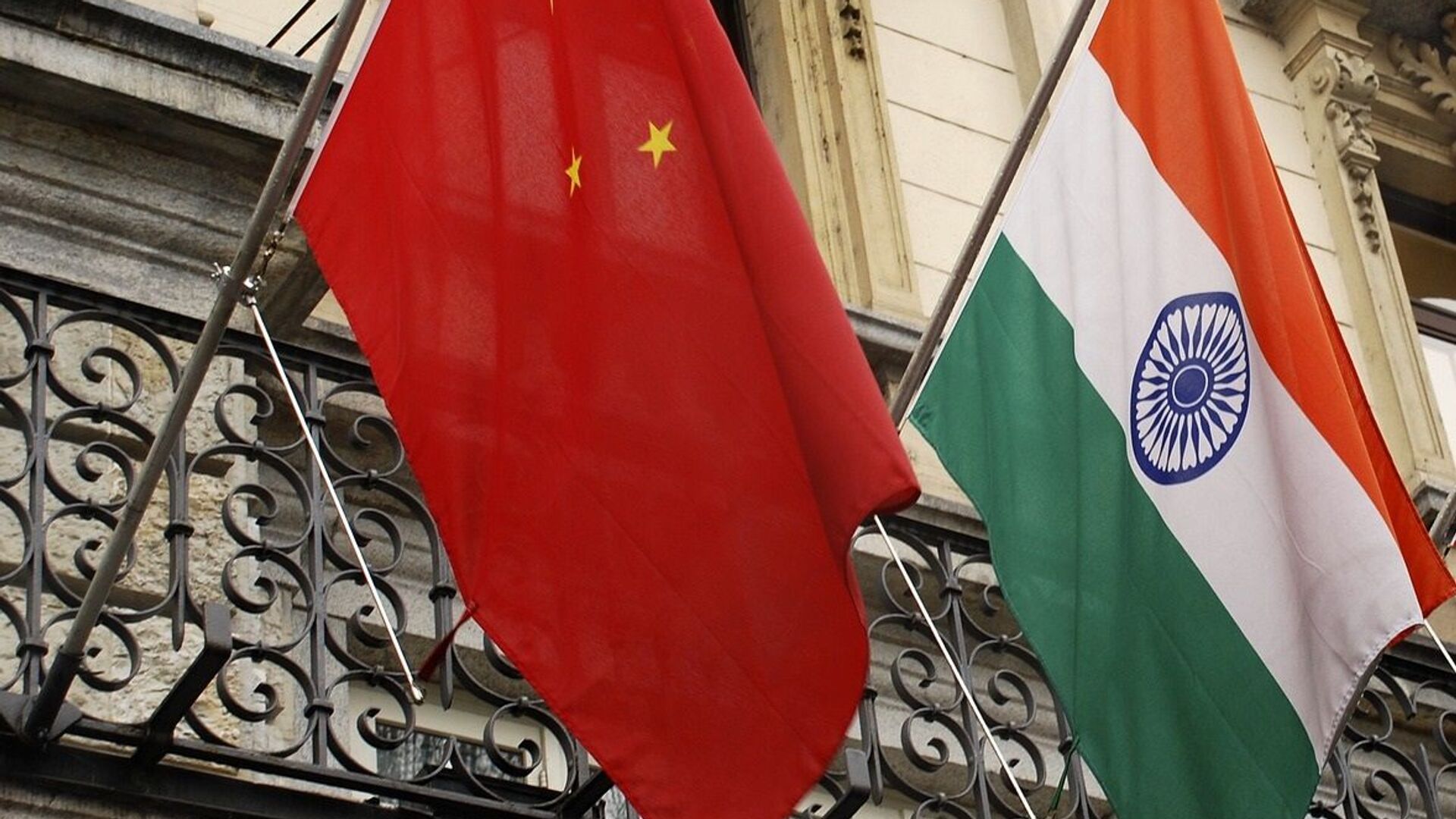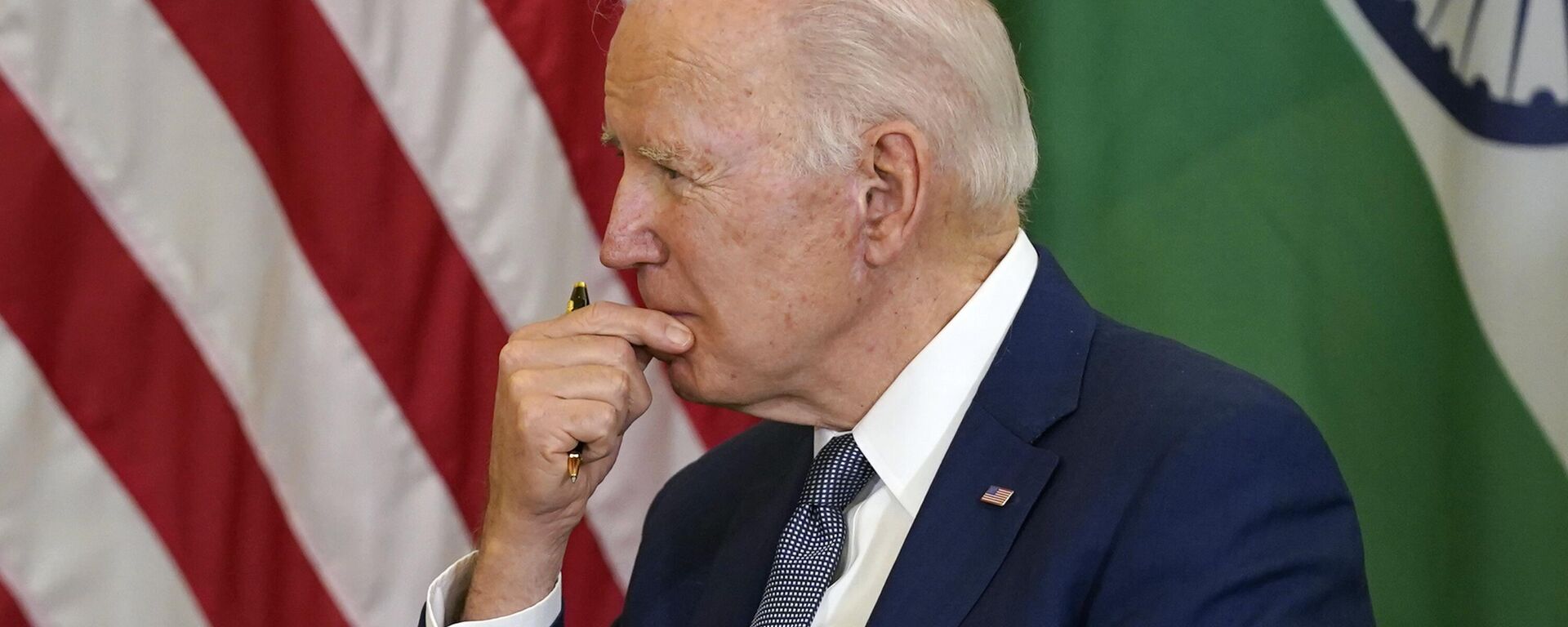https://sputniknews.in/20230804/why-stable-india-china-relations-important-for-modis-re-election-in-2024-3401889.html
Why Are Stable India-China Relations Important for Modi’s Re-election in 2024?
Why Are Stable India-China Relations Important for Modi’s Re-election in 2024?
Sputnik India
Prime Minister Narendra Modi’s government will try and ensure that New Delhi’s border tensions with Beijing don’t spiral out of control ahead of the general election in India next year.
2023-08-04T19:48+0530
2023-08-04T19:48+0530
2023-08-04T20:57+0530
sputnik opinion
ladakh
india
china
us
people's liberation army (pla)
joe biden
xi jinping
us navy
indo-pacific
https://cdn1.img.sputniknews.in/img/07e7/07/19/3178505_0:308:1178:971_1920x0_80_0_0_f7ff87bceda228468d12bc1c58aee4a2.jpg
Prime Minister Narendra Modi’s government will try and ensure that New Delhi’s border tensions with Beijing don’t spiral out of control ahead of the general election in India next year, a biographer of the Indian leader has told Sputnik India.India’s Ministry of External Affairs (MEA) revealed last week that the two leaders spoke about the need to “stabilize” the situation at the Ladakh border when they briefly met on the margins of the G-20 Summit in Bali last November. Before last week, the MEA had maintained that Xi and Modi had only exchanged “courtesies” at the meeting.On Thursday, Modi told South African President Cyril Ramaphosa in a telephone call that he would be travelling to Johannesburg later this month to attend the BRICS Leaders’ Summit, according to an official readout of their call.The MEA has also said that it has sent out invites to all G-20 leaders to attend the Summit scheduled to take place in New Delhi on 9-10 September.Meanwhile, India's main federal opposition Congress Party has been critical of the Modi government for its handling of the border situation with China. It's criticism is expected to intensify further ahead of the elections.Galwan Valley ClashesThe clashes at Galwan Valley in June 2020 resulted in deaths of 20 Indian and five Chinese troops, according to official statements.New Delhi has said that the Galwan Valley clashes have “profoundly disturbed” the trust between the Asian neighbours and that it cannot be “business as usual” with Beijing unless the border situation is resolved.The bilateral relations have since become more or less stable, with both the sides carrying out disengagement of troops and de-escalating the overall situation at three friction points—north and south banks of Pangong Tso Lake and the Gogra Hot-Springs area.However, thousands of troops from both the countries remain engaged in a military standoff at Depsang and Demchok, according to reports citing Indian defense officials.Despite the military tensions, China ranks among India's biggest trading partners, New Delhi importing goods and merchandize worth nearly $100 billion over the last few years.‘Ties to Remain Stable Unless There’s Another Escalation’Mukhopadhyay said that ties between the two neighbours will remain stable unless there was another “escalation” at the Line of Actual Control (LAC), the de-facto yet disputed border.Pravin Sawhney, a defense expert and the author of ‘The Last War: How AI Will Shape India's Final Showdown with China’, also said that he didn’t see any change in India-China relations till the general election next year.Sawhney also expressed concern about India’s growing proximity with the US on the heels of Modi’s state visit to Washington in June.India and the US have signed the four foundational pacts-- General Security of Military Information Agreement (GSOMIA); Basic Exchange and Cooperation Agreement (BECA); Communications Compatibility and Security Agreement (COMCASA); and Logistics Exchange Memorandum of Agreement (LEMOA).The joint statement after talks between Modi and the US President Joe Biden also noted that they have concluded the ‘Master Ship Repair Agreement’, which would turn India into “hub for maintenance and repair for forward deployed US Navy assets”.
https://sputniknews.in/20230725/india-and-china-agree-detente-in-bilateral-ties-crucial-for-entire-world-3169018.html
https://sputniknews.in/20230601/sl-kanthan-us-not-interested-in-indias-strategic-autnonomy-2278320.html
ladakh
india
china
us
indo-pacific
pangong tso
gogra hot-springs
pakistan
Sputnik India
feedback.hindi@sputniknews.com
+74956456601
MIA „Rossiya Segodnya“
2023
Dhairya Maheshwari
https://cdn1.img.sputniknews.in/img/07e6/0c/13/138962_0:0:641:640_100x100_80_0_0_2cb44360dbcdf6d84bf4b299cd045917.jpg
Dhairya Maheshwari
https://cdn1.img.sputniknews.in/img/07e6/0c/13/138962_0:0:641:640_100x100_80_0_0_2cb44360dbcdf6d84bf4b299cd045917.jpg
News
en_IN
Sputnik India
feedback.hindi@sputniknews.com
+74956456601
MIA „Rossiya Segodnya“
Sputnik India
feedback.hindi@sputniknews.com
+74956456601
MIA „Rossiya Segodnya“
Dhairya Maheshwari
https://cdn1.img.sputniknews.in/img/07e6/0c/13/138962_0:0:641:640_100x100_80_0_0_2cb44360dbcdf6d84bf4b299cd045917.jpg
modi news, india china news, india china border, india china relations, india china trade, india china trade deficit, modi xi jinping meeting
modi news, india china news, india china border, india china relations, india china trade, india china trade deficit, modi xi jinping meeting
Why Are Stable India-China Relations Important for Modi’s Re-election in 2024?
19:48 04.08.2023 (Updated: 20:57 04.08.2023) Indian PM Narendra Modi and President Xi are expected to come face-to-face at the BRICS Leaders' meeting in South Africa. The two leaders discussed the border situation when they briefly met at G-20 Summit in Bali.
Prime Minister Narendra Modi’s government will try and ensure that New Delhi’s border tensions with Beijing don’t spiral out of control ahead of the general election in India next year, a biographer of the Indian leader has told Sputnik India.
Nilanjan Mukhopadhyay, the author of Modi’s biography ‘Narendra Modi: The Man, the Times’, said that the “resumption” of leadership level contacts between the Indian leader and Chinese President Xi Jinping is meant to ensure that the border situation could be “effectively managed” in the lead-up to the election season.
“In India, bilateral relations with other countries don’t matter much in domestic politics unless they have got to do with Pakistan. In the case of China, the negative effects of the hostilities at the Ladakh border’s Galwan Valley Region in 2020 have largely been contained so as not to affect the overall public sentiment,” Mukhopadhyay remarked.
India’s
Ministry of External Affairs (MEA) revealed last week that the two leaders spoke about the need to
“stabilize” the situation at the
Ladakh border when they briefly met on the margins of the
G-20 Summit in Bali last November. Before last week, the MEA had maintained that Xi and Modi had only exchanged “courtesies” at the meeting.
On Thursday, Modi told South African President Cyril Ramaphosa in a telephone call that he would be travelling to Johannesburg later this month to attend the BRICS Leaders’ Summit, according to an official readout of their call.
The MEA has also said that it has sent out invites to all G-20 leaders to attend the Summit scheduled to take place in New Delhi on 9-10 September.
Meanwhile, India's main federal opposition Congress Party has been critical of the Modi government for its handling of the border situation with China. It's criticism is expected to intensify further ahead of the elections.
The clashes at Galwan Valley in June 2020 resulted in deaths of 20 Indian and five Chinese troops, according to official statements.
New Delhi has said that the Galwan Valley clashes have “profoundly disturbed” the trust between the Asian neighbours and that it cannot be “business as usual” with Beijing unless the border situation is resolved.
The bilateral relations have since become
more or less stable, with both the sides carrying out disengagement of troops and de-escalating the overall situation at three friction points—north and south banks of Pangong Tso Lake and the Gogra Hot-Springs area.
However, thousands of troops from both the countries remain engaged in a military standoff at Depsang and Demchok, according to reports citing Indian defense officials.
Despite the military tensions, China ranks among India's biggest trading partners, New Delhi importing goods and merchandize worth nearly $100 billion over the last few years.
‘Ties to Remain Stable Unless There’s Another Escalation’
Mukhopadhyay said that ties between the two neighbours will remain stable unless there was another “escalation” at the Line of Actual Control (LAC), the de-facto yet disputed border.
“Prime Minister Modi has smartly conveyed to the Indian public that under him, India’s prestige and stature abroad has been greatly enhanced and that Indian passport has become more powerful internationally,” the Indian author said.
“In politics, perception is all that matters,” Mukhopadhyay remarked.
Pravin Sawhney, a defense expert and the author of ‘The Last War: How AI Will Shape India's Final Showdown with China’, also said that he didn’t see any change in India-China relations till the general election next year.
“Nothing much is expected to happen between Prime Minister Modi and President Xi on the margins of BRICS Summit,” he reckoned.
Sawhney also expressed concern about India’s growing
proximity with the US on the heels of Modi’s state visit to Washington in June.
“Another reason (for no foreseeable change in Sino-India ties) is that Modi seems to have embedded India in the US strategy for Indo-Pacific. And the situation between Americans and Chinese is sufficiently tense as of now,” Sawhney remarked.
India and the US have signed the four foundational pacts-- General Security of Military Information Agreement (GSOMIA); Basic Exchange and Cooperation Agreement (BECA); Communications Compatibility and Security Agreement (COMCASA); and Logistics Exchange Memorandum of Agreement (LEMOA).
The joint statement after talks between Modi and the US President Joe Biden also noted that they have concluded the ‘Master Ship Repair Agreement’, which would turn India into “hub for maintenance and repair for forward deployed US Navy assets”.




